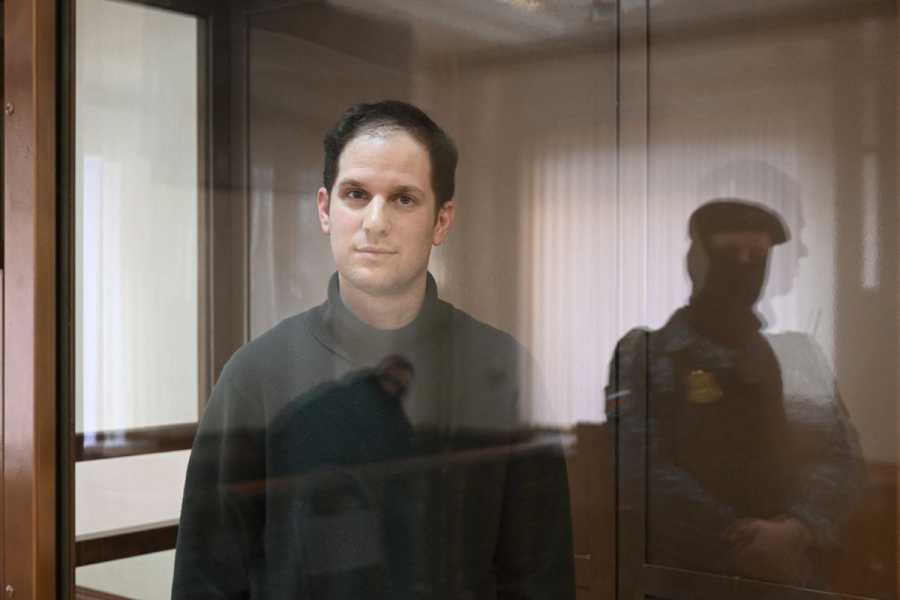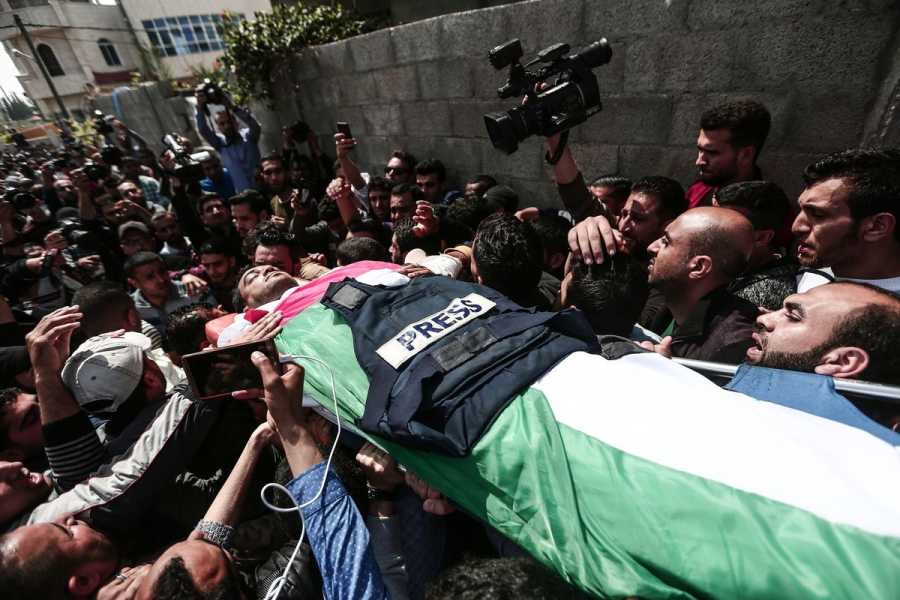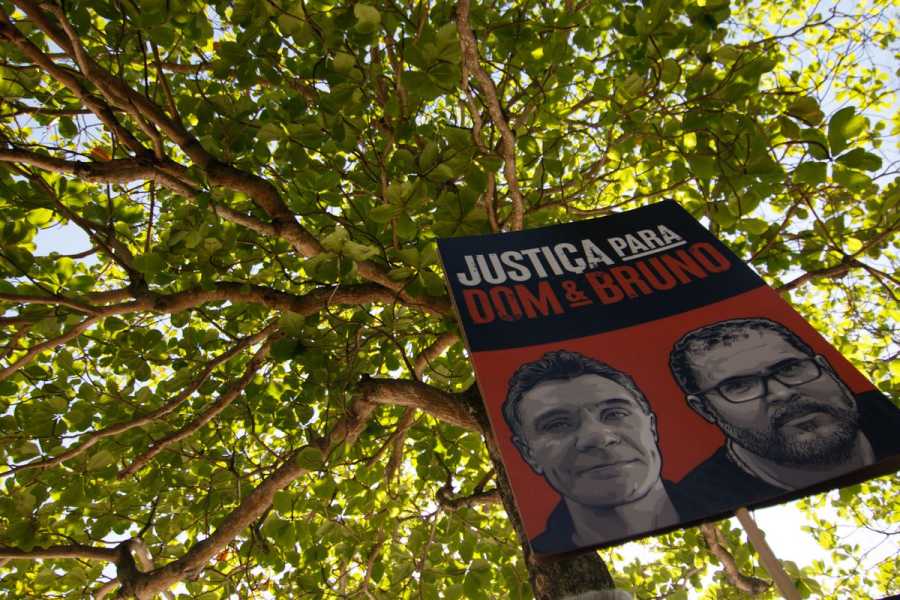Russia’s year-long detention of Evan Gershkovich is one part of a very grim picture for journalism.

US journalist Evan Gershkovich, arrested on espionage charges, stands inside a defendants’ cage before a hearing. AFP via Getty Images Caroline Houck is senior editor of news at Vox, where she oversees the daily flagship newsletter and helps direct news coverage.
This morning, Evan Gershkovich, a Wall Street Journal reporter and the first American journalist to be arrested in Russia on espionage charges since the Cold War, woke up to his second year in prison.
After five years of covering Russia, he was arrested in March 2023. It came as a shock: Though Russian journalists have long faced increasing repression and even deadly peril, international journalists “were generally a somewhat protected class,” as my former colleague Jonathan Guyer wrote one year ago.
One thing Gershkovich had in common with many Russian journalists who have run afoul of the state: His arrest was bogus. Within two weeks, the US government officially designated him as “wrongfully detained.” Reporters Without Borders (RSF), meanwhile, considers him a “Russian state hostage.” Despite a year of pre-trial hearings and extensions on his detention, Russia has publicly provided no clear evidence to substantiate its allegations.
For the media that remains in the country, it has also “had a huge chilling effect, with further self-censorship,” Jeanne Cavelier, the head of RSF’s Eastern Europe and Central Asia desk, said over email.
That all serves Russian President Vladimir Putin’s aims amid the ongoing war in Ukraine. But what’s happened to Gershkovich isn’t just about Putin.
Yes, his government was already particularly bad on press freedom and has only gotten worse since Russia invaded Ukraine: Over 30 journalists in Russia are currently imprisoned because of their reporting, and “between 1,500 to 1,800 Russian journalists were forced into exile” over the last two years, according to a report by the RSF’s JX Fund.
“Russia is ranked 164th out of 180 countries in the last Press Freedom Index,” Cavelier pointed out. “It dropped another nine places last year, in the worst category of the ranking where the press freedom situation is classified as ‘very serious.’”
But it would be short-sighted to think that brazen attacks on the media stop at Russia’s borders.

The 2018 funeral ceremony for Yassser Murtaja, a Palestinian news reporter, who was shot by Israeli forces while covering a rally within the “Great March of Return.” Mustafa Hassona/Anadolu Agency/Getty Images
Impunity in action
The most egregious example of what happens when there’s a sense of impunity over attacks on journalists is the Israel-Hamas war.
As the Committee to Protect Journalists (CPJ) noted in December, 68 journalists were killed in the first 10 weeks of the war — more “than have ever been killed in a single country over an entire year.”
That tally has only grown since.
Gaza was already a difficult place to conduct independent journalism, given Hamas’s harassment, intimidation, and physical abuse of reporters. And war zones are obviously dangerous for all civilians, reporters included.
But Israel has said it cannot guarantee journalists’ safety in Gaza and has denied international reporters access to the territory. Even more concerning: Critics say the Israel Defense Forces also appear to have a pattern of targeting journalists.
vox-mark
Sign up for the newsletter Today, Explained
Thanks for signing up!
Check your inbox for a welcome email.
Email (required)
Oops. Something went wrong. Please enter a valid email and try again.
By submitting your email, you agree to our Terms and Privacy Notice. You can opt out at any time. This site is protected by reCAPTCHA and the Google Privacy Policy and Terms of Service apply. For more newsletters, check out our newsletters page. Subscribe
“In at least one case, a journalist was killed while clearly wearing press insignia in a location where no fighting was taking place,” CPJ reported. “In at least two other cases, journalists reported receiving threats from Israeli officials and IDF officers before their family members were killed.”
This builds on years of broader restrictions and harassment of the media, including 20 killings of journalists by Israeli fire over the last two decades. Israel has opened investigations into many of these deaths, to be sure, but no one has ultimately been held accountable.
One notable example: In 2022, Palestinian-American journalist Shireen Abu Akleh was killed as she was reporting for Al Jazeera on an IDF raid in the West Bank. Independent media investigations indicated it was a deliberate attack by IDF soldiers.
Israel says there is a “high possibility” a soldier shot Abu Akleh but there was “no suspicion that a bullet was fired deliberately.” (The US response to the killing of one of its citizens was slow to materialize; only six months after her death did reports break that the US had opened an investigation into her killing.)
Yes, wars are dangerous to report from. With one exception, “the countries with the highest number of journalists killed for their work in any given year” — Syria in 2012, Afghanistan in 2018, Ukraine in 2022, and Somalia in 2012 — were at war or amid an insurrection, per CPJ data.
But this isn’t exclusive to war zones.

British journalist Dom Phillips and Brazilian indigenous expert Bruno Pereira were murdered in the Amazon. Joao Gabriel Alves/Picture Alliance via Getty Images
The broader picture
Anywhere there’s a struggle for power or even just a lot of money at stake, the media is at risk — be that from the state, non-state actors (like cartels, terrorist groups, or business interests), or an unholy union of the two.
Nowhere is that clearer than in Latin America and the Caribbean.
- In Guatemala, for example, Q’eqchi’ Mayan journalist Carlos Choc has been subjected to years of legal intimidation and persecution in response to his reporting on the country’s mining industry.
- In Haiti, there are questions over whether a powerful prosecutor covered up — or even ordered — the murder of a popular radio journalist.
- In Ecuador, where gangs have been fighting over a newly lucrative narco industry and defying the government with increasing impunity, letter bombs were delivered last year to at least five TV and radio journalists. (Thankfully, no serious injuries were reported.)
- In Mexico, right before Abu Akleh’s killing, three journalists were killed in the span of three days. I’m highlighting it as a stark example of the dangers that reporters, especially those who cover politics or organized crime, face in Mexico — the most dangerous country for media workers for three years running before the outbreak of the Ukraine war.
- In Brazil, British journalist Dom Phillips was murdered in 2022 alongside a Brazilian activist while reporting for a book on the destruction of the Amazon. It is part of what the Guardian described as “the increasingly violent atmosphere that has gripped Brazil since the 2018 election of a president who has overseen what activists call a historic assault on Indigenous rights and the environment.”
At the risk of making your eyes glaze over, I’ll stop there.
This profession has never been safe. But until a decade ago or so, there was at least a sense that journalists had a recognized role in reporting from even the world’s worst conflicts — and that role afforded them some protection.
The last couple of years have felt particularly grim, and the outbreak of two wars by two governments, both known to operate with impunity toward reporters, is an obvious turn for the worse.
This story appeared originally in Today, Explained, Vox’s flagship daily newsletter. Sign up here for future editions.
Sourse: vox.com